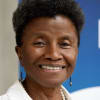
The first two decades of the 21st century were a golden era for malaria control. Concerted efforts by African governments and their partners led to significant reductions in incidence and mortality. About 2.1 billion malaria cases and nearly 11.7 million deaths were averted globally. However, progress has slowed since 2015.
Despite major gains, Africa is now at the center of a perfect storm in its fight against malaria. Financial shortfalls, climate change, insecticide and drug resistance, and humanitarian crises collectively threaten to result in potentially devastating malaria upsurges. In 2022, Africa accounted for 94% of malaria cases (233 million) and 95% of deaths (580,000) globally, mostly affecting women and children. Urgent action and greater support are needed to help countries revitalize and sustain malaria control efforts.
Among the critical issues that require urgent action is the significant resource gap, with countries in Africa facing a $1.5 billion budget shortfall by 2026 to sustain the current, yet inadequate, coverage of essential malaria interventions. This shortfall, linked to the global financial crisis and the higher cost of essential commodities to address the threat of resistance, could result in malaria deaths doubling, mirroring worst-case scenarios predicted at the outset of the COVID-19 pandemic. Furthermore, additional annual funding of $5.2 billion is required for the continent to make progress toward elimination and allow countries to fully implement their national strategic plans. Another $11 billion annually is needed to support climate adaptation in the health sector. It is imperative that we act quickly to bridge these gaps and fully finance national malaria strategic plans.
History shows that malaria can quickly resurge when control measures are weakened. If coverage of essential lifesaving interventions is not sustained, there is a significant risk of catastrophic epidemics, leading to increased mortality and morbidity, especially in young children. These resurgences will place incredible strain on country health systems, threaten global health security, and have devastating economic and health consequences for individual countries and globally. Preliminary data from the Malaria Atlas Project, examining malaria receptive risk, estimates that a complete absence of malaria control in 2022 would have led to 558,275,474 cases and 2.8 million deaths. It is not just the gains we have made that are at risk; if malaria programs are not sustained, we could end up in a place far worse than we were two decades ago.
The continued high number of malaria cases places severe stress on country health systems and economies. Malaria is a leading cause of worker absenteeism, costing the continent an estimated half a billion days of work each year. We must consider the impact of an increasing number of malaria cases and deaths on both our economies and health systems.
Domestic resource mobilization remains a challenge, as malaria is disproportionately concentrated in low-income countries and in vulnerable populations. Many African countries are affected by the ongoing financial crisis, facing high levels of debt and default risks, with limited domestic resources due to low tax revenues and high borrowing costs. Malaria is the biggest killer compared to tuberculosis and HIV/AIDS in low-income African countries, which have the least ability to pay for prevention and case management. which have the least ability to pay for prevention and case management. Leveraging public and private sector partnerships becomes crucial in addressing these challenges. Establishing country-owned, multisectoral End Malaria Councils and Funds, which bring together leaders from government, private sector, civil society, and communities can keep malaria high on political and development agendas and mobilize domestic resources. Furthermore, implementing malaria control as a pathfinder for health systems strengthening, primary health care, and pandemic preparedness, as well as a key example of how we must fight the impact of climate change on health, will enhance integration, improve efficiency, and bring other dividends including new resources.
Despite increases in domestic spending and private sector resource mobilization, malaria-endemic countries will continue to rely on donor funding, as 70% of malaria resources come from external funders. It is essential that the forthcoming Gavi, the Vaccine Alliance and Global Fund to Fight AIDS, Tuberculosis and Malaria replenishments are successful, and that malaria retains, at the absolute minimum, its current share in the Global Fund disease split. We must ensure there are sufficient resources to address vaccine-preventable diseases, as well as HIV, TB, and malaria. Given the perfect storm we are facing, it is crucial to not just maintain but increase malaria financing for increased coverage.
Amid this perfect storm, African countries need all the financial support they can get from global partners, which is essential for the short to medium term. Countries have used subnational tailoring to target malaria interventions where they are needed most to maximize impact, but serious gaps still remain.
In the long term, we need assured and sustained responses that are Africa-led and -owned. This is the true essence of the Yaoundé Declaration's commitment to drive the political will, leadership, and momentum required to materially grow annual resources for malaria. In their pledge to implement the declaration, African ministers of health have vowed to work with their heads of state and government to drive political will, prioritize malaria in government agendas, and increase domestic resource allocations for malaria programs. This commitment involves driving multisectoral collaboration and harnessing public-private partnerships to address funding shortfalls, including through the establishment of End Malaria Councils and Funds.
A shining example of what can be achieved with strong political commitment, multisectoral collaboration, and a robust health systems approach is Cape Verde, which earlier this year received World Health Organization certification as malaria-free. Cape Verde’s achievement sets a powerful example of what is possible in Africa — a malaria-free continent. The Yaoundé Declaration is a crucial starting point to embody the true essence of “Zero Malaria Starts with All of Us!”
Read about African health ministers’ commitment to ending malaria deaths.









